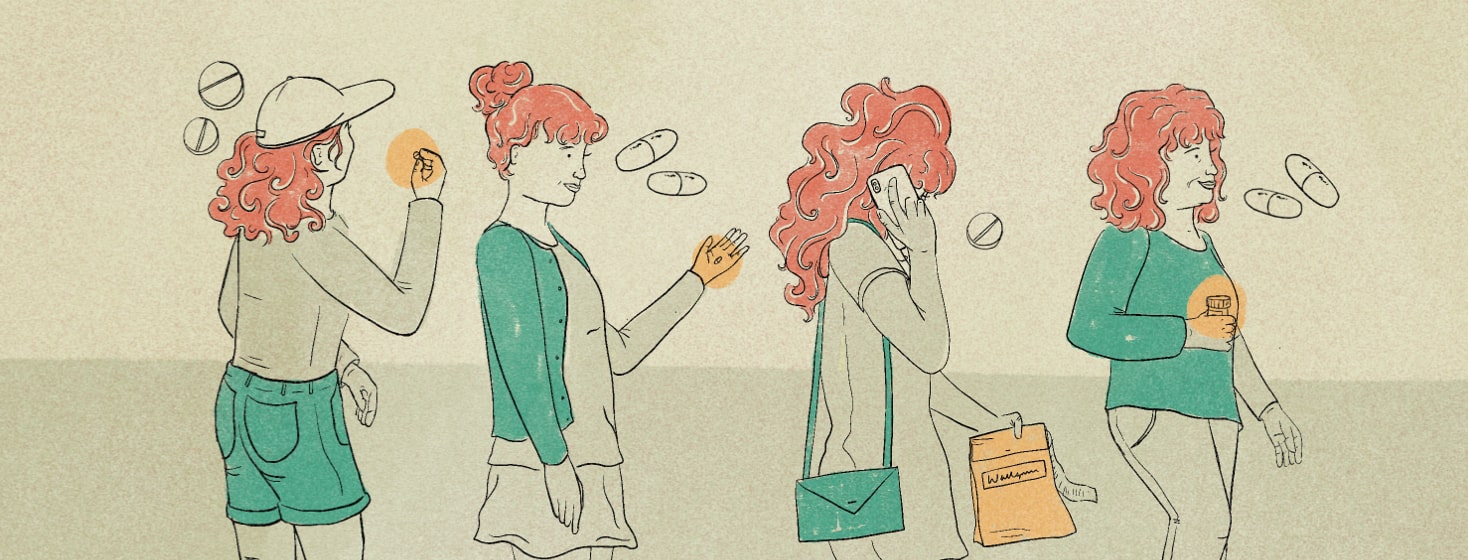My RLS Success Story
I was a fidgety little girl. I would go along to watch my dad performing in the orchestra, wriggling and jiggling my way through the entire performance.
I was a restless young adult. I had a constant need to be on the move, tapping my feet through any otherwise still activity, like going to the cinema or sitting on an aeroplane.
I grew into insomnia, and by the time I was in my thirties, my sleep was severely compromised for all sorts of reasons - including my inability to keep still.
Sometime in my forties, I stumbled across the term "restless legs syndrome,” and I knew in my heart that was me. Not just occasionally. Not just in pregnancy. It described me to a tee every single day of my life.
Finally finding a name for my experience
Discovering there was an actual term, that there were symptoms, causes, and diagnoses, gave me a real sense of not being alone. But the internet, in its infinite wisdom, didn’t seem to deem it serious. When I mentioned RLS to friends and family there was a strong chorus of, “Me, too!” But upon further investigation, it wasn’t really true.
Some experienced episodes during pregnancy. Some developed RLS symptoms after taking over-the-counter medications such as antihistamines. But none had daily incessant movements starting late afternoon and continuing throughout the night, disrupting almost any chance of sleep.
Treatment with benzodiazepines
Eventually, I went to the doctor and declared that I had self-diagnosed myself with RLS. After a long discussion, he concurred; I did indeed have a clinically significant case. At that time in Australia, the only available medication was diazepam. I went home with my little script and had the happiest 4 hours of peace I’d had in a very long time.
But diazepam is a benzodiazepine, and they are well known for creating tolerance and dependence in users, so a nightly dose was not going to be a good idea. I saved the tablets for just once or twice a week — the occasional 4-hour reprieve. Over the years I continued to research RLS, looking for magic answers.
My symptoms lessened and felt manageable
I followed all the suggestions: good sleep hygiene protocols, magnesium supplements, and eliminating all sugar, alcohol, and caffeine from my diet. I had my iron levels checked; my serum ferritin levels were almost non-existent, so I had an iron infusion.
All these things helped in the early days, especially the iron infusion. Symptoms did not go away altogether, but they lessened and felt manageable.
RLS medications and augmentation
Eventually, I read about a Parkinson’s disease drug called pramipexole that was being used off label to treat RLS. I spoke to my doctor, got myself a script, and changed my life. Oh, what a happy day that was! My body started to feel a sense of peace it had never known. I started sleeping a few hours through the night and even when my other insomnia symptoms kept me awake, at least I could lie still. It was nothing short of a miracle.
A few short years later I developed augmentation, and my magic pill no longer did its trick. I also developed significant nerve pain shooting along the same pathways as the RLS. I was miserable. So I traipsed back to the doctor, was taken off pramipexole, and put onto an anti-epileptic drug called pregabalin. The nerve pain went, the RLS was mollified, and I rested again.
As the years passed, pregabalin was insufficient to manage my symptoms, and a very low dose of pramipexole was reintroduced.
Continuing to experiment with dosage and lifestyle changes
In the past decade, I have experimented with different doses. I have also finally found treatment for my other insomnia issues. Today I take 75mg of pregabalin and 250mcg of pramipexole every night in addition to my insomnia medications.
I continue to be very careful with alcohol, caffeine, and sugar, and due to being post-menopausal I no longer require iron infusions. I can happily say my RLS is extremely well-managed. I still feel fidgety most of the time, but it’s completely manageable, not disruptive, and most importantly I sleep really well every night.
Good regular sleep is a miracle
I feel like an RLS success story. There was a lot of experimentation and tears along the way, but I am very fortunate to have responded well to pharmaceutical interventions — I know not everyone is so lucky. I am glad I persevered with doctors, saw a sleep specialist, and made the effort to try all the suggestions to see what did and did not work for me.
Good regular sleep feels like magical fairies have sprinkled pixie dust on me while flying over the rainbow on their silver unicorns. It truly is a miracle.

Join the conversation